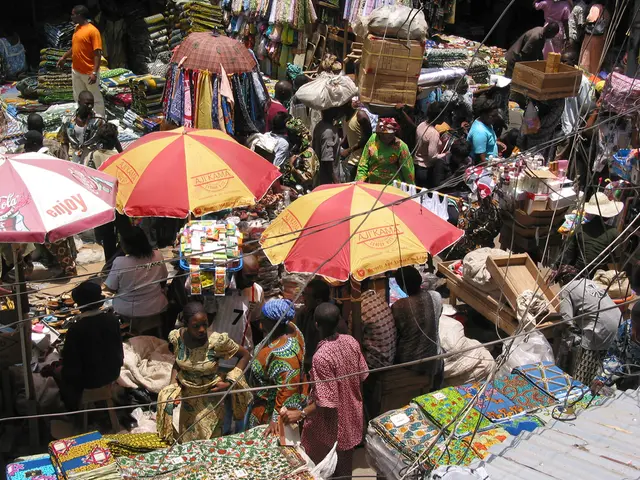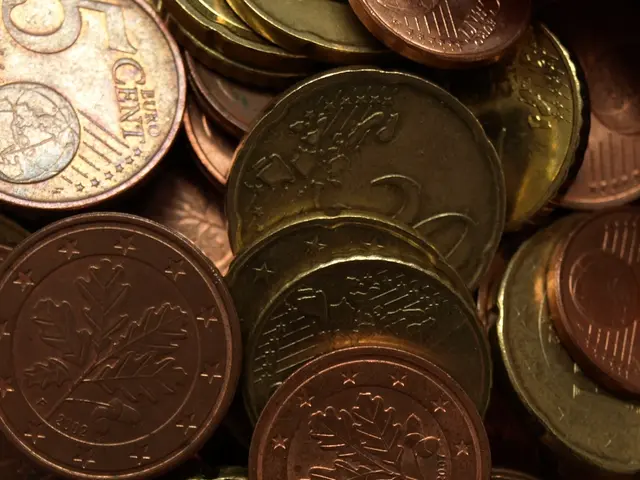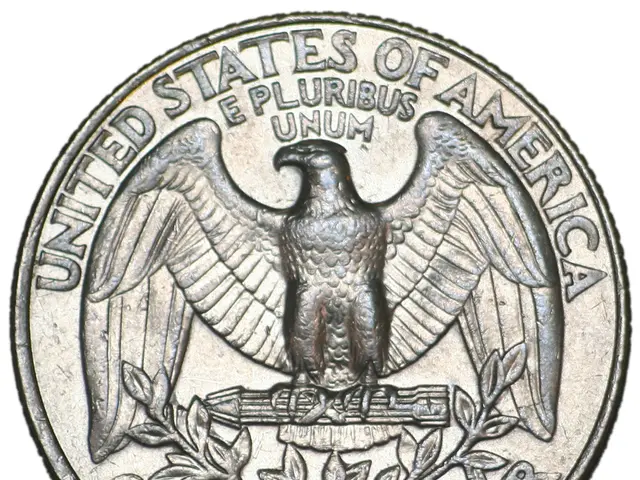Official from Nigeria confirms examination of Binance under scrutiny
The Nigerian government has taken a significant step in regulating the cryptocurrency sector by launching an investigation into Binance, a global cryptocurrency exchange, and filing an $81.5 billion lawsuit against the company. The allegations centre around Binance's operations contributing to the depreciation of the Nigerian currency, the naira, and evading taxes amounting to $2 billion.
The Office of the National Security Adviser (ONSA) of Nigeria is leading the investigation, with the goal of ensuring proper oversight and preventing market disruptions or illegal activities linked to the crypto sector. This move is part of Nigeria’s broader struggle to develop a clear regulatory framework for cryptocurrencies.
The lawsuit and investigation come amid concerns about the economic impact of unregulated crypto trading and tax compliance. While some Nigerian officials recognize the importance and growing role of blockchain technology and digital assets in the economy, the authorities emphasize that the goal is not to shut down legitimate crypto businesses but to ensure stability in the local economy.
Meanwhile, the U.S. government has taken separate action involving Binance accounts linked to Nigerian fraudsters, seizing over $7.5 million in illicit crypto assets. However, this U.S. enforcement action is distinct from the Nigerian government's lawsuit concerning economic damages and tax claims against Binance itself.
The investigation into Binance's activities in Nigeria is ongoing, with no further information provided by Zakari Mijinyawa, the head of strategic communications at the ONSA. Reports suggest that Binance officials were arrested when they came into the country on the government's invitation.
In a related development, Binance confirmed in an email to its users that its website and other major crypto exchanges were not accessible to Nigerian users. Last week, Binance placed restrictions on purchasing USDT using Nigeria's currency. The company's P2P marketplace serves mainly as an escrow to connect USDT traders to buyers at a price agreed to by both parties.
The federal government of Nigeria has also reportedly directed telecommunications service providers to restrict access to cryptocurrency exchanges operating within the country. These measures are part of the government's efforts to regulate and hold crypto businesses accountable within the country.
The news was first reported by Nigerian news outlet Premium Times. However, a report from The Peoples Gazette called Onanuga's $10 billion claim a lie, citing a Binance official. Despite this, Onanuga maintains that Binance's customers were responsible for the rapid devaluation of the naira.
In conclusion, the investigation and lawsuit against Binance are significant steps in Nigeria's quest to regulate the cryptocurrency sector and stabilize the local economy. The U.S. enforcement action involving Binance accounts linked to Nigerian fraud is a separate matter. The investigation into Binance's activities in Nigeria is ongoing, with no further information provided by the ONSA.
- The Nigerian government is ascertaining Binance's contributions to the depreciation of the naira and tax evasion worth $2 billion by leading an investigation through the Office of the National Security Adviser (ONSA).
- The investigation aims to ensure proper oversight and avoid market disruptions or unlawful activities associated with the cryptocurrency sector, as part of Nigeria's strategic efforts to develop a regulatory framework for digital assets.
- In the broader context, concerns regarding the economic impact of unregulated crypto trading and tax compliance have driven the current actions being taken by Nigerian authorities.
- Beyond Nigeria's borders, the U.S. government has seized over $7.5 million in illicit crypto assets tied to Binance and fraudulent activities, a case distinct from the Nigerian lawsuit concerning Binance itself.
- Despite the ongoing investigation, Binance has imposed restrictions on Nigerian users accessing its website and P2P marketplace, possibly due to the government's pressure on holding the crypto industry accountable.
- In line with the attempts to regulate and manage the cryptocurrency sector, telecommunications service providers in Nigeria have been reportedly directed to restrict access to crypto exchanges operating within the country.
- Reports suggest a controversy over the $10 billion claim regarding Binance's customers being responsible for the rapid devaluation of the naira, with differing perspectives from Nigerian news outlets and Binance officials.




